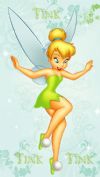|
ESL Forum:
Techniques and methods
in Language Teaching
Games, activities
and teaching ideas
Grammar and
Linguistics
Teaching material
Concerning
worksheets
Concerning
powerpoints
Concerning online
exercises
Make suggestions,
report errors
Ask for help
Message board
|
ESL forum >
Ask for help > DOUBTS
DOUBTS
|

Urpi

|
DOUBTS
|
|
Hi everybody I need your help I have found these sentences and the question is why are these nouns like plurals?
1.-The council are closing the old library.
2.- Brazil are playing Colombia in today �s final.
3.-The team haven�t praticed as well as last year.
Thanks for your time. |
1 Oct 2011
|
|
|
|

misscaty

|
|
Hi there! this kind of nouns are considered as plural because you are talking about the members in the team and council, not the team or council as a unit. So, the sentences refer to Brazil and Colombia as all the players in the team not as the team itself.Hope this has helped !!! regards from Mexico. |
1 Oct 2011
|
|
|

yanogator

|
|
I agree with misscaty �s explanation, but I would add that I would use the singular in all three sentences, especially in the first, since it is the council as a whole that is taking the action, not the individual members. Well, now that I think of it, it �s the whole team in the second sentence that is playing, not the members as individuals. Bruce |
1 Oct 2011
|
|
|

Mar0919

|
|
I agree with Bruce, and consider all 3 sentences as SINGULAR... In all 3 situations, you are talking about a group of people, not about the members of each. If you specified in each, it would be different, for example, "the members of the council", "the players from Brazil", "the players of the team... " then it would be considered plural. but as a whole, it is singular... Have a nice weekend! Mar |
1 Oct 2011
|
|
|

BlancaNC

|
|
To be clear, you must say: 1.-The council is closing the old library. (The members are closing...) 2.- Brazil is playing Colombia in today �s final. (The Brazlian players are competing against...) 3.-The team hasn�t praticed as well this year as last. (The teammates haven �t practiced...) I cannot think of a case where a singular "group" noun is used with a plural verb. The closest I can come up with is "deer" which is the same word in the singular and plural: The deer have already eaten the new shrubbery I planted. |
1 Oct 2011
|
|
|
|
|

Mar0919

|
|
These nouns are always in singular: mass nouns: butter, air, flour, etc. -school subjects: Math, Physics, History, etc. -games: pool, darts, football, etc. -diseases: flu, measles, mumps, etc. -groups of people: team, staff, -other: advice, homework, hair, information, news, seaside, traffic, work, furniture, money, -garbage, jewelry, etc. nouns always in the plural: -objects consisting of 2 parts: pants, pajamas, binoculars, scissors, etc. -other: people, police, stairs, etc. At least this is how I learned it!  Have a nice day! |
1 Oct 2011
|
|
|

lizsantiago

|
|
Collective Nouns and Verb Agreement Practice
Definition: A collective noun is a noun that names a group
that is made up of individuals. Examples: herd; team; class; audience;
fleet; swarm; army; crowd, etc.
Agreement with verb: The collective noun has a singular meaning when
one speaks about a group as a unit. Example: The family sits down to
dinner. (Family is a single unit)
The collective noun has a plural meaning when one wants to show that each
individual member of the group acts as an individual. Example: The
family scatter in all directions to do their own thing. (Individuals within
family group.)
Hint: To decide whether the collective noun is singular or plural,
substitute the word it for the collective noun. If the sentence still
makes sense when you substitute it, the collective noun is singular. If
you can substitute they, the collective noun is plural. |
1 Oct 2011
|
|
|